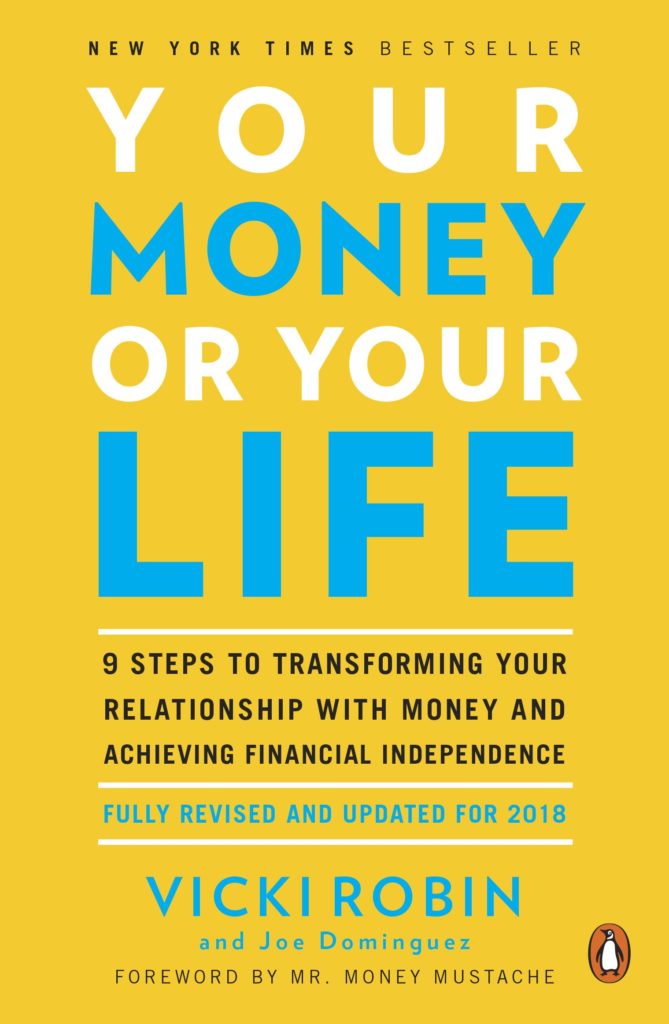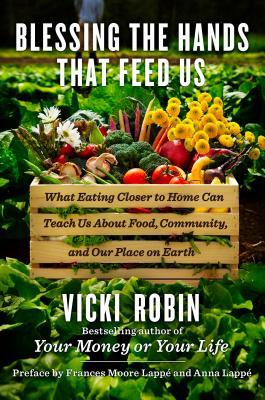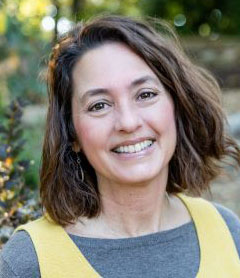
During the summer after I graduated from George Mason University — almost 20 years ago — I remember buying exactly three books to signify my passage into adulthood. I was wise enough to know that my new bachelor’s degree did not address some important life skills, like cooking and managing money.
One of those books was “Get a Financial Life: Personal Finance in Your Twenties and Thirties” by Beth Kobliner — a book that prompted me to make small sacrifices (i.e., no cable TV) in order to pay off my student loans quickly while also taking advantage of my employer’s 401(K) match early in my career.
I’m grateful for reading that book, but now I wish I had read another title that summer: “Your Money or Your Life: 9 Steps to Transforming Your Relationship with Money and Achieving Financial Independence,” by Vicki Robin and Joe Dominguez.
This bestseller was originally released in 1992 … and I just read the revised edition for 2018.
The book emphasizes frugality — but in a much more meaningful way than “The Millionaire Next Door,” the 1996 bestseller that I read for the first time last week.
Not only will “Your Money or Your Life” force you to track how money flows into and out of your life — ideally with a wall chart — but it urges you to shift your mindset and think of money as life energy. Author Vicki Robin explains this simple approach as “putting money in service to your values, other than your life in service to money, and moderating your consumption to a point of ‘enoughness,’ rather than the treadmill of ‘too muchness’.”
My favorite chapter addresses how we spend our time — looking specifically at our definition of work. The authors argue we are suffering from “Job Charming syndrome” — where we look for the perfect job that not only pays the bills but will also fulfill all of our greatest desires: Status, meaning, adventure, travel … the list goes on.
“The real problem with work, then, is not that our expectations are too high. It’s that we have confused work with paid employment. Redefining ‘work’ as simply any productive or purposeful activity, with paid employment being just one activity among many, frees us from the false assumption that what we do to put food on the table and a roof over our heads should also provide us with our sense of meaning, purpose, and fulfillment. Breaking the link between work and money allows us to reclaim balance and sanity.”
I do wish I read this when I was 20 years old — especially as the authors show some paths to early retirement — but I probably didn’t have enough life experience to truly connect with the message.
So why do I bring this up?
Money always seems to be on my mind — and not just because I work with budgets in the grants office. It touches everything we do, doesn’t it? As the student debt crisis escalates, we know many students choose Virginia Western because it’s more affordable. We know many of our students struggle with their bills — so much so that food pantries are starting to appear on campuses around the VCCS and the nation.
And our programs are helping all of our students find or improve their “work” — using the broad definition from the book.
Virginia Western (and each of us) have the power to transform the lives of our students — to improve the quality of their lives. This is the kind of book that makes you think deeply about your purpose and reveals if your values are aligned with the time you spend earning and spending money. It just might change how you approach your job. I found it incredibly empowering.

After I read “Money or Your Life,” I (frugally) reserved Vicki Robin’s latest book from the Roanoke library: “Blessing the Hands That Feed Us: What Eating Closer to Home Can Teach Us About Food, Community, and Our Place on Earth.” This title appeals to me because I also think a lot about the place-based mission of Virginia Western — about our role in community wealth building. We are educating our neighbors, our caregivers, our community builders. That’s powerful stuff. So I continue to read more about local investing and other ways to make our communities more resilient. I hope to share more insights about that topic in the future.






 Shelley Lyons is glad to be back on campus as she is a Virginia Western alum, and has served as the Administrative Officer for Grants Administration at Virginia Western since early 2022. Prior to VWCC, her career focus was within the Human Services and Arts fields. She wrote her first grant in 1996 on a whim and has continued to plan and learn since that time. She most enjoys seeing a well-planned project come to fruition, where funder, project manager and beneficiaries can all feel success and see impact.
Shelley Lyons is glad to be back on campus as she is a Virginia Western alum, and has served as the Administrative Officer for Grants Administration at Virginia Western since early 2022. Prior to VWCC, her career focus was within the Human Services and Arts fields. She wrote her first grant in 1996 on a whim and has continued to plan and learn since that time. She most enjoys seeing a well-planned project come to fruition, where funder, project manager and beneficiaries can all feel success and see impact.